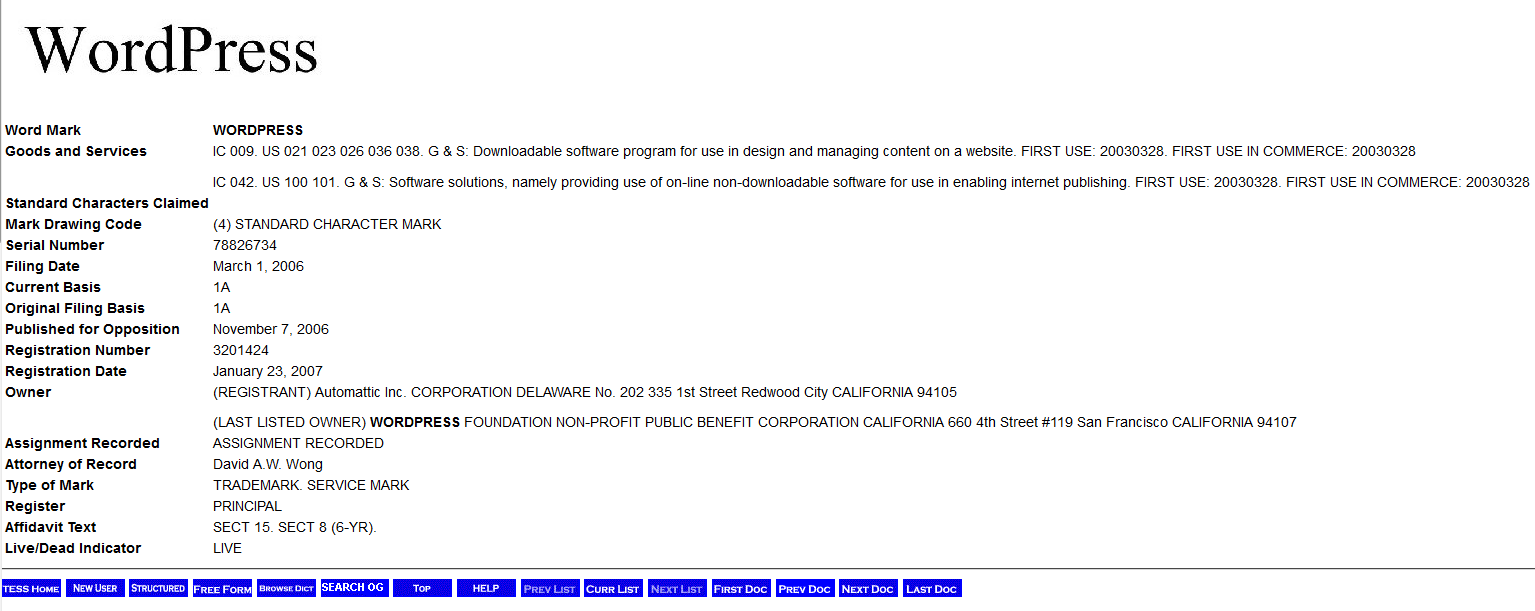While the GPLv2 is an open source license that offers many freedoms to do with the code as you please, those freedoms are not carried over to trademarks. Take WordPress for example. WordPress is a registered trademark overseen by the WordPress Foundation. If someone wants to redistribute WordPress as is, they can under the terms of the GPLv2 license but would likely be stopped for trademark infringement as it would cause confusion with the official project.

According to USPTO.gov, a trademark is defined as: a word, phrase, symbol, and/or design that identifies and distinguishes the source of the goods of one party from those of others. A service mark is a word, phrase, symbol, and/or design that identifies and distinguishes the source of a service rather than goods. The term “trademark” is often used to refer to both trademarks and service marks.
The GPL is a license that defines the terms of use for the code. A license does not serve the same function as a copyright or trademark and the GPL itself is designed for software not for logos or names.
Trademark registrants are obligated to enforce their trademark or risk losing it. Copyright and trademark laws are different and eloquently explained by Sara F. Hawkins. She explains the similarities and differences along with the things you need to know about both. The Software Pluralism site also has explanations with examples of how trademarks intersect with open source software.
Other WordPress companies that strictly enforce their trademarks are RocketGenius Inc. with GravityForms and Joost De Valk with the character mark of Yoast registered in both the US and the Netherlands. In a conversation on Twitter with Carl Hancock and Joost De Valk, I discovered that enforcing trademarks is a full-time job for both.
Trademarks Give Business Owners Leverage Where The GPL Does Not
Of all the effort that was put into educating users and developers of the GPL in the past several years, what to do with trademarked material must have fallen through the cracks. It must be stressed that the GPL is a software license. Trademark and copyright laws are different and should be treated as such.
The responsibility is on the person forking and redistributing a plugin or theme to ensure no copyrights or trademarks are being infringed. Sean Lang learned this lesson the hard way when he tried to redistribute a version of WP Migrate DB Pro but mistakenly used copyrighted content within the Readme.MD.
The following are general rules of thumb that should help avoid trouble when forking or redistributing a theme or plugin. These steps are especially important if you decide to fork and redistribute a commercial theme or plugin.
- Rename it. Keeping the same product name confuses users and possibly violates a trademark
- Maintain the copyright of the original author
- Do not use trademarked images, logos, etc.
- Search for registered trademarks of the product and company name
- Look for trademark information on the company’s website, usually found within the terms of service or in the footer.
Registering a trademark for a WordPress product or company seems to be the way to go to ensure your brand and reputation is not being used maliciously or in a confusing manner. If WordPress companies had a secret weapon, it would be trademarks.
If you have registered a trademark for your WordPress product or company, please share your experience in the comments. Also feel free to share your process for dealing with infringements.
I am not a lawyer and this post should not be taken as legal advice. Please do your own research and contact the appropriate people to receive legal advice as copyright and trademark laws can be complex and hard to decipher.
Additional Resources:
- The United States Copyright Office
- Cornell University Law School Legal Information Institute
- The World Intellectual Property Organization
- The United States Patent and Trademark Office
- Red Hat Enterprise Linux Derivatives Legal Aspects
- Trademarks and OSS
There is latitude to make references to upstream products. You can say that a product uses an upstream source code, for example, “Foo, the app is powered by the Linux® kernel.”
You just have to give clarity when referencing the upstream product/project is not an endorsement or direct affiliation.
So, someone could announce “ForkedWord is a fork of the WordPress CMS.” for example…